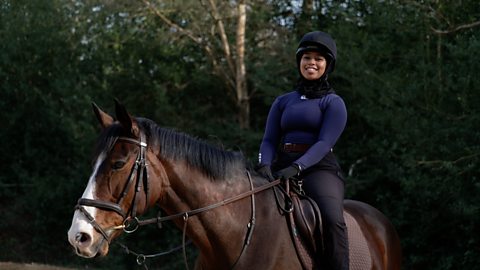You probably know that exercise benefits your physical health, but did you know that exercise can also boost your memory, improve focus and concentration, and increase energy levels? And all of these things can help with your revision and academic performance!
But before you dust off your gym clothes and sign up to the next London Marathon, take a moment to watch this video from Team GB gymnast twins Jessica and Jennifer Gadirova and find out a little more about how exercise can help you with your studies.
Both: Hi we’re Jennifer and Jessica Gadirova, we’re Olympic gymnasts for Team GB and we were revising for our GCSE’s whilst training for the Tokyo Olympics where we won an Olympic bronze medal!
Jennifer: Exercise can easily be incorporated in your daily lives. You probably heard the benefits it can have on your physical AND mental health, but did you know it can help with your revision?
Jessica: There is a link between academic performance and being physically active.
Jennifer: That’s because exercising can increase your energy levels, help you focus and concentrate – it can even improve your memory!
Jessica: The World Health Organisation recommends that young people – including those with physical disabilities – to do 60 minutes of exercise every day.
Jennifer: The advice is you should do moderate to vigorous exercise, something that gets you warmer and gets your heart beat going, like running or dancing.
Jessica: Ok, you might be thinking how on earth do I fit it into one day when I’ve got school and revision to do? Well, it’s easier than you think!
Jennifer: The most simple way to increase activity levels is to build in the activities you're already doing. If you can walk or cycle to school, great! If not, there are many more activities you can do before or after school, like playing football, skipping or dancing.
Jessica: At school, you'll be clocking up some activity time as you move around – like taking the stairs or having a kick-around at lunchtime. But if you want to increase activity, you could take up an after-school sports club, or see if there are any free taster sessions at your local sports venue.
Jennifer: It’s important to do what works for you: any activity that get your heart-rate up like playing with the dog or tidying your room will count if you do it with enough energy!
Jessica: You can build exercise in your revision timetable, make sure you take time away from your books and do something active.
Jennifer: Getting outside and being in green spaces, if you can, can have a positive impact on your mental health. I like to walk the dog, but running outside with some friends is great as well. But exercising too late can make it hard to switch off and go to sleep, so plan ahead so you can get plenty of rest.
Jessica: Bringing exercise into your routine and making it a part of your life is easy when you enjoy what you’re doing. Remember that everyone's body and physical ability is different
Jennifer: Don’t worry about not hitting the recommended targets straight away – something is better than nothing. It’s important you find an activity that you enjoy and hopefully, start to see the improvements in your revision!
Jessica: And our favourite activity is to do gymnastics.
The World Health Organisation recommends that children and young people do at least 60 minutes of moderate-to-vigorous exercise (i.e. something that makes you breathe faster and feel warmer) per day. There are more guidelines from the NHS here.
But with school, homework and a social life, finding an hour to fit exercise into your already busy day is going to be tough, right? Wrong! It's easier than you might think, and with our top tips you'll soon be fighting fit and smashing your studies!
Tip 1
Build activity into things you already do. If you can walk or cycle to school, great! If not, can you find other ways to get active before school – like skipping, dancing, burpees or planks? Any activities that get your heart-rate up so even tidying your room or playing with a pet will count if you do it with enough energy…
Tip 2
Try something new. If you want to increase activity you could take up an after-school sports club, or see if there are any free taster sessions at local sports venues. Check out this guide on some unique sports you could try.
Tip 3
Plan exercise into your revision timetable. Make sure you regularly take a break from your books to do something active. If you're feeling tired whilst revising, taking fifteen minutes out to do something active is a great way to boost your energy levels. Need some help planning your revision timetable? We've got your back.
Tip 4
Enjoy the great outdoors. Getting outside to exercise is a good idea. Exercising outside in green space has been associated with reducing stress levels, and best of all: it's free! Why not go for a run with some friends or take a dog for a walk in the park?
Tip 5
Make sure you have fun! Bringing exercise into your routine and making it a part of your life is easier when you enjoy what you’re doing – so make sure you choose something fun to help you keep active – and don’t worry about hitting the recommended targets straight away.

Things to remember when exercising
If you're new to exercise, start gently and don’t overdo it. Make sure you warm up before you exercise, whether you’re new to exercise or not – this can help prevent injury
Exercising too late in the day can make it hard to switch off and go to sleep, so exercise earlier in the day. For some tips on creating a good bedtime routine, take a look at this article by YouTuber Nayna Patel
Don’t worry about hitting the recommended targets straight away. Every little helps and it’s more important to find an activity that you enjoy
If you ever have health concerns in relation to exercise, you should speak to a healthcare professional
If you find that exercise is making you feel worried or unhappy, then talk to a trusted adult and seek support

If you need support
You should always tell someone about the things you’re worried about. You can tell a friend, parent, guardian, teacher, or another trusted adult. If you're struggling with your mental health, going to your GP can be a good place to start to find help. Your GP can let you know what support is available to you, suggest different types of treatment and offer regular check-ups to see how you’re doing.
If you’re in need of in-the-moment support you can contact Childline, where you can speak to a counsellor. Their lines are open 24 hours a day, 7 days a week.
There are more links to helpful organisations on BBC Action Line.

How exercise can help your mental health
Jockey Khadijah Mellah talks about how exercise can help your mental health.

Think exercise isn't for you? Think again!
Paralympian Thomas Young and jockey Khadijah Mellah tell us about some alternative ways we can exercise!

Revision: Timetables and planning
Some top tips to help you get organised with your revision.
